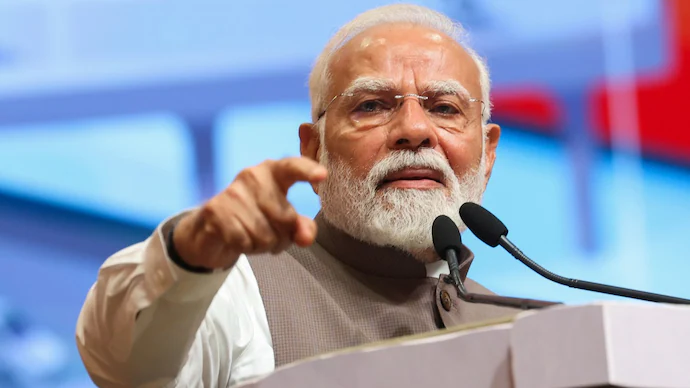New Delhi, May 27 — In a recent and stirring address, Prime Minister Narendra Modi underscored the urgent necessity of bolstering the ‘Make in India’ initiative, drawing attention to a surprising development — Ganesh idols, a cherished symbol of Indian tradition and devotion, are increasingly being imported from China. This revelation has sent ripples across cultural and economic circles, bringing into sharp focus the challenges posed by foreign goods flooding Indian markets.
At the annual Make in India summit, the Prime Minister expressed deep concern over the phenomenon of ‘dumping’—the practice by which inexpensive Chinese products, subsidized and mass-produced, enter India, undermining local industry. “It is a matter of great irony that even the idols of Lord Ganesh, integral to our festivals and faith, are being brought in from outside our borders,” he remarked, urging citizens and businesses alike to prioritize Indian-made goods.
The Challenge of Chinese Imports
For years, Indian manufacturers have grappled with the surge of low-priced Chinese products. The sheer volume and cost-effectiveness of these imports, often at the expense of quality and cultural authenticity, have resulted in stiff competition for domestic producers. The import of Ganesh idols during the festive season exemplifies this trend.
Economists warn that such dumping practices distort market dynamics, jeopardizing the sustainability of India’s manufacturing base. “The dominance of cheap imports from China disturbs trade balance and threatens indigenous crafts,” noted Dr. Anil Kapoor, an expert in international commerce.
Empowering Indigenous Crafts
The Make in India campaign, launched in 2014, aims to revitalize India’s manufacturing sector, including its rich artisan heritage. While significant strides have been made in sectors like automobiles and technology, traditional crafts have struggled against the influx of cheaper, foreign-made alternatives.
Ganesh idols, traditionally molded from natural clay by skilled artisans, carry cultural and spiritual significance. Yet synthetic idols, often imported from China, are gaining ground—raising environmental and cultural concerns alike.
Local craftsmen, dependent on the Ganesh Chaturthi festival for their income, voice increasing distress at the competition. Ramesh Patil, a veteran sculptor from Maharashtra, lamented, “Our idols embody devotion and craftsmanship, qualities absent in imported products.”
Government Measures and Growing Awareness
In response, the government has initiated steps to curb the import of synthetic idols and provide greater support to domestic artisans. These include stricter import regulations, skill enhancement programs, and financial incentives.
Simultaneously, there is a growing public movement to choose locally crafted idols, reflecting a renewed sense of cultural pride and economic responsibility.
In Summation
Prime Minister Modi’s call to action through the Make in India movement is a vital reminder of the need to protect India’s manufacturing and cultural heritage. The importation of Ganesh idols from China serves as a symbolic example of the wider issues posed by foreign dumping. Addressing these challenges requires concerted effort from policymakers, consumers, and artisans to preserve the soul of Indian tradition and secure its economic future.



